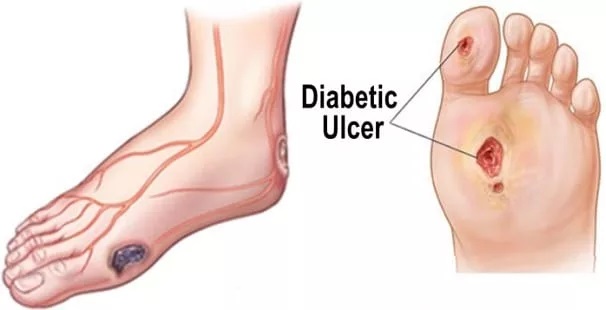Complications From Diabetes An Increasing Concern
Source: Vientiane Times
Diabetic foot ulcers are the leading cause of non-traumatic amputations in people with diabetes and complications from the condition are becoming widespread in Laos and the region.
An ulcer is an open sore or wound that occurs in about 15 percent of patients with diabetes and is commonly located on the bottom of the foot.
Of those who develop a foot ulcer, 6 percent will be hospitalised due to infection or other ulcer-related complications. Worldwide, about 14-24 percent of patients with diabetes who develop a foot ulcer will require an amputation. Foot ulceration precedes 85 percent of diabetes-related amputations.
Deputy Director General of Vientiane’s Setthathirath Hospital, Dr Bounmy Somsamouth, spoke about the condition at a workshop on the care and treatment of diabetic foot ulcers.
He said it was imperative that ulcers be treated to keep people in good health, ensure their quality of life, and reduce the number of amputations. This requires highly qualified medical staff.

Explaining diabetes, Dr Bounmy said the condition can cause damage to the nerve and vascular supply in the feet and legs. Patients with neuropathy have reduced or no sensation and so might be unaware of any trauma to their feet caused by ill-fitting footwear or an object in their shoes.
The number of diabetics being treated at Setthathirath Hospital is increasing and more people are visiting the hospital for advice and treatment.
From 2014 to 2019, the number of diabetics was recorded at 14,458, while 82 people had diabetic foot ulcers.
One of the reasons for the increasing number of diabetics each year is because there is little in the way of educational material about the need for a healthy diet and physical activity, which helps to reduce blood glucose and cholesterol, Dr Bounmy said.
Diabetes is not just a health issue, he added. There are substantial economic losses when people of productive age are diagnosed with diabetes. It impacts their families, the health system, and the economy through medical costs and the loss of work and wages
Most important is that people with diabetes make dietary changes to ensure their daily food intake does not raise their blood glucose levels. Stress can also put people at risk of diabetes.
Large people and those over 35 years of age are also at increased risk. Experts suggest that for early diagnosis people should have their blood glucose level checked every three years and avoid a high-cholesterol and high-carbohydrate diet to prevent the onset of diabetes.



